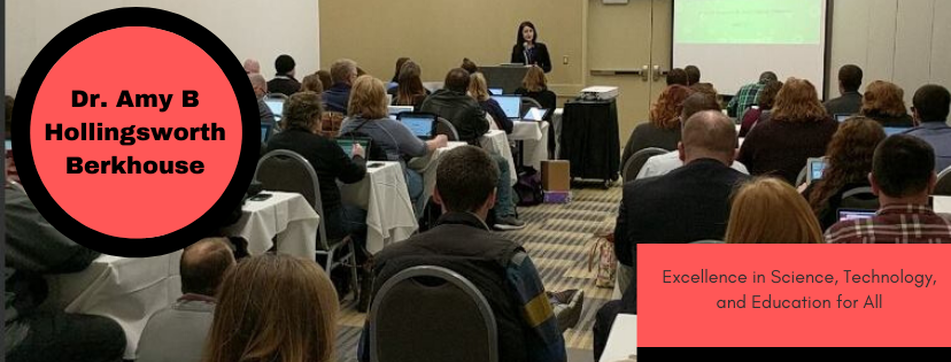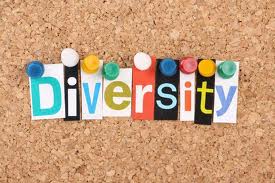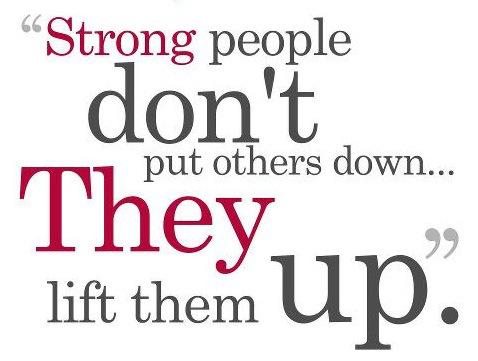|
This is a beautifully done video, about the effects doing good things for other people has on our lives. Doing kind things for others doesn't just make them happy. It makes YOU a better person. There is both intrinsic and extrinsic joys to doing things for other people. Teachers, when you are kind to your students, it matters. Even when they do naughty things, in the long run, you will have an influence on their lives. How will your students remember you?
0 Comments
I think that Bill and Melinda Gates have done some of the most amazing, most helpful things with all their money. They have set up their lives to help so many people. They are wonderful role models. I appreciated their brainstorming techniques, which is described as “long walks on the beach, talking about their goals.” I watched their TED talk, “Bill and Melinda Gates: Why giving away our wealth has been the most satisfying thing we’ve done,” and was inspired by many of the things they said. In 1993, Bill and Melinda Gates took a walk on the beach and made a big decision: to give their Microsoft wealth back to society. In conversation with Chris Anderson, the couple talks about their work at the Bill & Melinda Gates Foundation, as well as their marriage, their children, their failures and the satisfaction of giving most of their money away. They talk about how they are not going to enable their kids to be rich, spoiled brats. They are not leaving their children billions. No trust funds. They want their childrens’ lives to have a meaning and purpose. They will provide an education for each child, that encompasses each child’s strengths. The Gates parents’ attitude toward their kids and money — call it the anti-Paris Hilton approach — resonates with an attitude toward wealth that runs as a subtext through TED itself. As an event, TED manages to gather some of the world’s richest people into one room. Once there, they’re bombarded with the message that money is not for having but for doing. As the world’s richest people, the Gates family could spend lifetimes doing nothing at all. But for the TED set, at least, the only points you get are for making something happen. I agree strongly with that point. These days, everyone is a critic. People criticize Gates for having an agenda. Others think there are ulterior motives, or a vast conspiracy. But being critical, in and of itself, doesn't help anyone do anything. The only way to help people in your life, is to make things happen. The Gates made goals, and then they go through each checkpoint on the way to reaching their goals.
Most of their philanthropic work centers around the educational system in America, reducing poverty and equality through access to education, and health care and childhood vaccines. They have traveled extensively through Africa, and have tried to help bring down the rate of infant mortality. They are fighting to bring access to injectable birth control in third world countries, because this gives women the choice whether or not to reproduce. Gates said, “Just because we don’t agree with everything about education, doesn’t mean we scrap the whole system. We fix what’s broken, and we keep our eyes on our goals.” The Gates advocate for smaller class sizes, STEM education, charter schools, and technology innovations. They discuss wanting great teachers in small classrooms, to give each child more attention. They have rightly pointed out that many of the graduating seniors today read at a middle-school level. They are working to help schools through grants, technology donations, charter schools, and creating university programs. When you have money like the Gates’ money, you are going to be criticized. People complain about their investing tactics, which they say is promoting companies that hurt the people in third-world countries. The Gates say they will always invest for the maximum return on investment. Next, people say there are three major problems with the foundation's allocation of aid. First, "by pouring most contributions into the fight against such high-profile killers as AIDS, Gates guarantees have increased the demand for specially trained, higher-paid clinicians, diverting staff from basic care." This form of "brain drain", pulls away trained staff from children and those suffering from other common killers. Second, "the focus on a few diseases has shortchanged basic needs such as nutrition and transportation.” Finally, "Gates-funded vaccination programs have instructed caregivers to ignore – even discourage patients from discussing – ailments that the vaccinations cannot prevent. If people want to see nutrition or transportation focused upon, they should start their own foundations. It’s not right to criticize, but do nothing to offer up help for what people think should be priorities. The Gates can focus on any disease they want - yes, there will always be other diseases out there that need money, but it is ultimately up to Gates and their foundation to how they spend their money. About education, Gates is criticized for “undermining the public education system.” I think that “public education” is a broken system, and I also advocate for charter schools, which can meet the needs of more students, in creative new ways not controlled by unions. Like Gates, I love teachers, but hate the bureaucracy. I do think test scores should be part of teachers’ evaluations, and I love the idea of merit pay. I think merit pay encourages the best teachers to put in the effort to become better. When the Gates Foundation gives students choices that they may not have had, if they had been stuck in a failing public school, I think the Gates are helping the poor beyond belief. Just as there will always be critics of the government, there will always be critics of the Gates. I believe that they have made amazing progress in achieving the goals they have made, and that they should forge ahead with the good things they do. Nothing they do is without vast amounts of research and man-power, and the Gates are helping people live and be educated every day. I may need to apply for one of their grants! STEM education is in the news, and is often touted as the best college career path ANY student can take. STEM is also criticized for not having enough minority student interest. Historically, STEM is very white, and very Asian. Pushing low-income, first-generation minorities into STEM fields may not be the “great idea” that it appears to be, from the outside. The headline on The Inside Higher Education blog reads: New Push to Boost Numbers of Minority STEM Ph.D.s On the surface, this seems like a noble goal. Get more minority students into STEM. Exciting! But, on the same website, is this headline about how blacks and Latinos are taking on more debt than their white counterparts: Debt, Race and Ph.D.s And in light of the reoccurring theme on The Chronicle of Higher Education, Insider Higher Ed, The Huffington Post, and countless other websites, it is becoming almost impossible to find a tenure-track, high paying job. One article talks about rejection, frustration, giving up searching, and living in despair. Here, a report from Congress about adjuncts, and the lower compensation and unpredictable schedules they face: The median respondent salary was $22,041, below the federal poverty line for a family of four ($23,550), although the typical course load was difficult to ascertain from the online forum (with adjuncts reporting as many as 10 courses per semester). Some 89 percent of respondents teach at two or more institutions, and most can’t depend on assignments from semester to semester. Many also said they relied on help from family members and government assistance to survive, despite having advanced degrees. More than 50 percent of respondents had Ph.D.s and 30 percent held master’s degrees. So, is the path out of poverty a path right back into poverty? The likelihood of achieving the tenure-track dream is so small and wrought with emotional turmoil and anxiety, is it worth it to push minority students down this path? They may end up in a worse place – saddled with student loan debt, stuck in an adjuncting position that pays below the poverty level, and without the necessary skills to advance in a non-academic position – than they were before they began “pursuing their dreams.” Is higher education the path out of poverty, or the dream-crusher that mounts added liabilities and wastes precious time? How do you know when higher education is the problem, or the solution?
Universities play many roles in society – places of big ideas, places where people can gather to talk about those ideas, places where experts discuss their ideas, and places where experiments about big ideas can take place. Balancing those ideas and giving priority to an agenda makes leading a university community difficult. One of the most massive difficulties I see is the delicate balance between two competing courses of thought. Do universities value the best ideas first? Or do universities value diversity first? Who decides? There was an article in The Daily Bruin (UCLA’s student newspaper) about the lack of diversity in commencement speakers: Since the UCLA College of Letters and Science reinstated a college-wide commencement in 2002, the crop of commencement speakers has lacked the diversity that UCLA administration touts as one of the university’s top priorities. Is diversity a token word, tossed around by administration, given lip service, and then disregarded? And what about diversity of ideas? Each of these speakers has very different, very big ideas. In looking at the diversity of race, aren’t we in fact promoting a sort of racism, where we say race matters? That you are not just your ideas, you are your race, or your gender, or your sexuality? And in trying to achieve “diversity,” are we saying that the 61-year-old white man’s ideas should now be placed on the back-burner, because race matters more than big ideas? How about my ideas? If I have the best ideas, and I get credit for them, should I not be placed “at the front of the pack” because I’m white? BUT!!!... I’m a woman. Does that mean I should be placed ahead, but still behind minority races, or sexuality? What order do we place people with ideas in? Are white people automatically placed “at the back of the bus” now, because of promotion of diversity? How is that fair to ME? I didn't choose to be white, or a woman, and I worked really hard at my great ideas! Is the subtle promotion of diversity instead promoting racism of a new kind? UCLA student columnist Eitan Arom features an intriguing letter from a UC-Berkeley alumnus on the subject of a recent Daily Bruin column, I am a 61-year-old white man, the sort that is often considered irrelevant and accused of being angered by the loss of privilege following social incursions of one or another previously oppressed groups. To allay any such considerations, I state for the record I have enough privilege to suit me, and no lack of money. I say what I say out of concern for our educational and other institutions. One of the student responses to the editorial asks some great questions: When will people realize that diversity of opinions is far more important than skin pigmentation or sexual organs? Life is more than just a checkbox or making sure you have a perfect "diversity zoo", if you will, with the exact mix of races and genders in the right proportions? Another student notes: Why are we so focused on skin color and sex. What the speakers have to say is much more important. And so I ask you, which comes first? Best ideas or diversity? If your answer is "Both!" then what happens if, for 12 years in a row, the best ideas come from 61 year-old, white men?
Have you ever had someone say something to you that cut you to your core? That maybe was said playfully, but that hurt you badly? What if that one thing stuck with you the rest of your life? I've battled with one remark that haunts me, to this day. Marie Forleo is a blogger who I love, and she shared a video this morning that made me think back to one of my life-shaping experiences. She said: "Have you ever had someone say something about your work that felt like a punch in the gut? Where you were almost shocked how downright ignorant and mean it was? While most of us get that learning to deal with criticism is an essential part of the creative game, that intellectual awareness doesn’t always help us emotionally. Especially when you’re first starting out. Words sting. And unfortunately, the harshest words often linger in the back corners of our minds longer than we’d like to admit. That’s why I want to tell you a story about this guy who put me down on an escalator and how I’ve used that experience to lift myself up." This one really struck home with me.. When I was in seventh grade, my geometry teacher would greet me every morning with "Hey, Hollingsworthless." Worthless. WORTHLESS. I spent every day of that year, essentially being told I was worthless. That it was part of my name - HollingsWORTHLESS. I became determined to prove him wrong. Even though the other kids laughed at me. Even though I felt awful, I held my head high, and mastered his math class. In fact, as a girl who "isn't supposed to be good at math," I got the highest grades in the class. I graduated from high school. I got a degree in Biology, and then a Master's Degree in Ed Administration, and just finally finished my PhD in STEM (science, technology, engineering, and math) education. I've spent every moment of my life, proving I wasn't worthless. So, now that I'm DOCTOR (and he's not), I teach hundreds of teachers every year what demeaning your students can do to them. No teacher should ever be allowed to make their student feel worthless. But would I trade that horrible experience? I would not be the same person I am today, without it. I wouldn't trade that awful remark for anything. Now, I not only teach at a university, I run a website for empowering women in science. I'm an author (written eight books, now working on my ninth), a motivational speaker, and an all-around awesome chick. His put-down became the fuel that fired me up. I won that game, hands down. What experiences have you had, in your own life, that fueled your fire? I'd love to hear them in the comments below! |
AuthorDr. Amy B Hollingsworth has worked in education for over 20 years. Most recently, she was a Learning Coach at the NIHF STEM School in Akron. She served as the Executive Director of Massillon Digital Academy. She was the District Technology Specialist at Massillon. She also was the Natural Science Biology Lab Coordinator at The University of Akron. She specializes in Biology Curriculum and Instruction, STEM education, and technology integration. She has written six lab manuals, and an interactive biology ebook. She has dedicated her life to teaching and learning, her children - Matthew, Lilly, and Joey, her husband Ryan, and her NewfiePoo Bailey. What's Amy Reading?Archives
December 2014
Categories
All
|







 RSS Feed
RSS Feed
